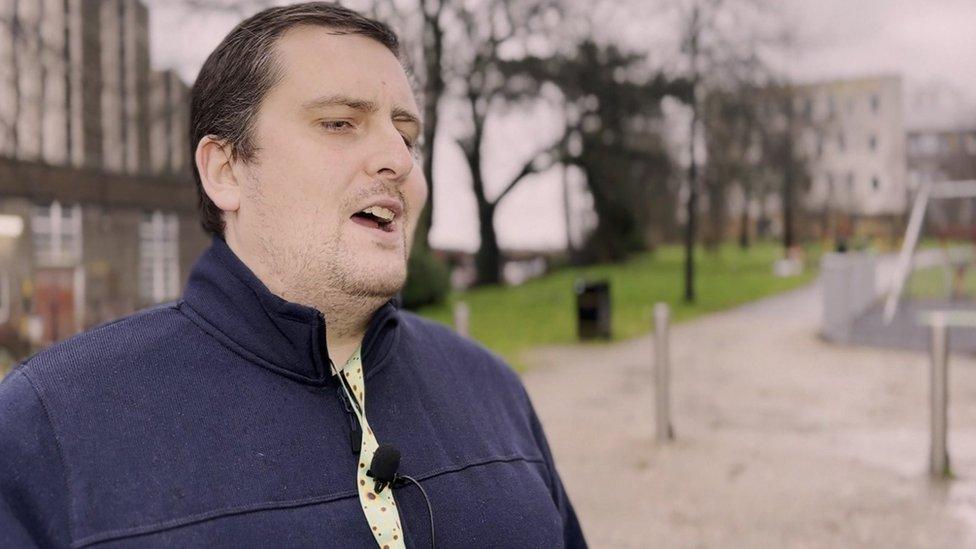Cuts to railway staffing will isolate disabled, charity says
- Published
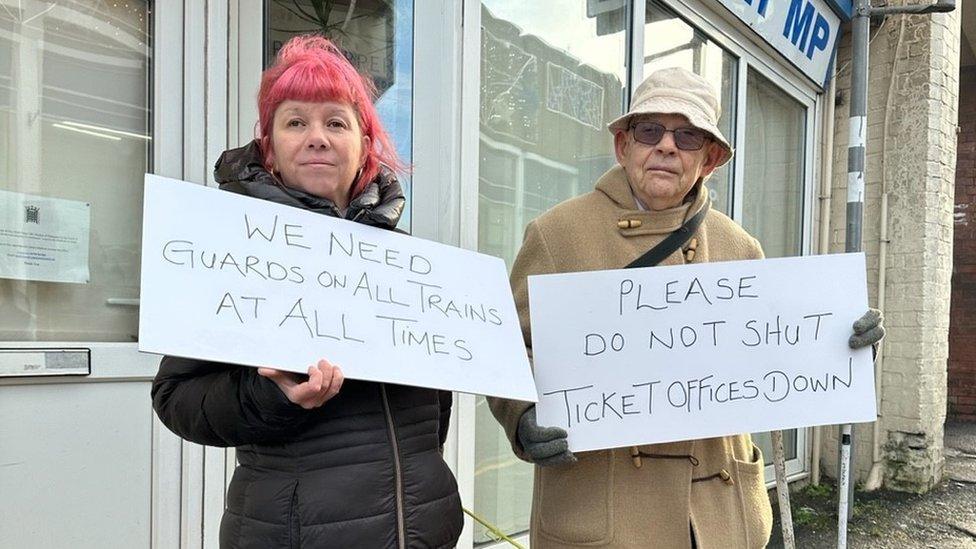
The petition was posted to the Transport Secretary ahead of train strikes
Plans to reduce railway staffing were discriminatory and would isolate disabled passengers, a charity warned.
The National Federation of the Blind posted a petition to the Transport Secretary after the government proposed changes that included closing ticket offices and removing train conductors.
Bill Waddell, a blind pensioner in his 80s, from Gloucestershire, said the proposals were "unsafe and unworkable".
The Department for Transport (DfT) said passenger safety was "a top priority".
The petition has been signed by nearly 90 charities and organisations from across the UK and is supported by the RMT rail workers' union.
It comes during a period of train strikes as unions dispute with the government and rail companies about pay, job cuts and changes to terms and conditions.
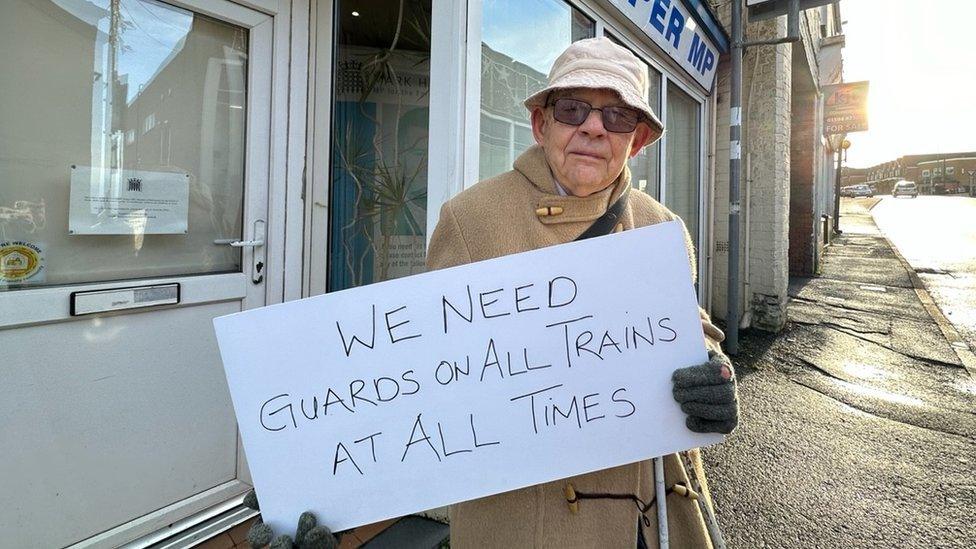
Mr Waddell said he was worried about the future of train travel for the blind
Mr Waddell posted the petition to the Secretary of State for the DFT, MP Mark Harper's Constituency Office, on 29 December.
"How will anybody who is blind, disabled or needing any assistance get on and off a train with no conductor or ticket office staff to help them?" Mr Waddell said.
"We need guards [conductors] left on trains and ticket offices open so that we can travel safely and independently."
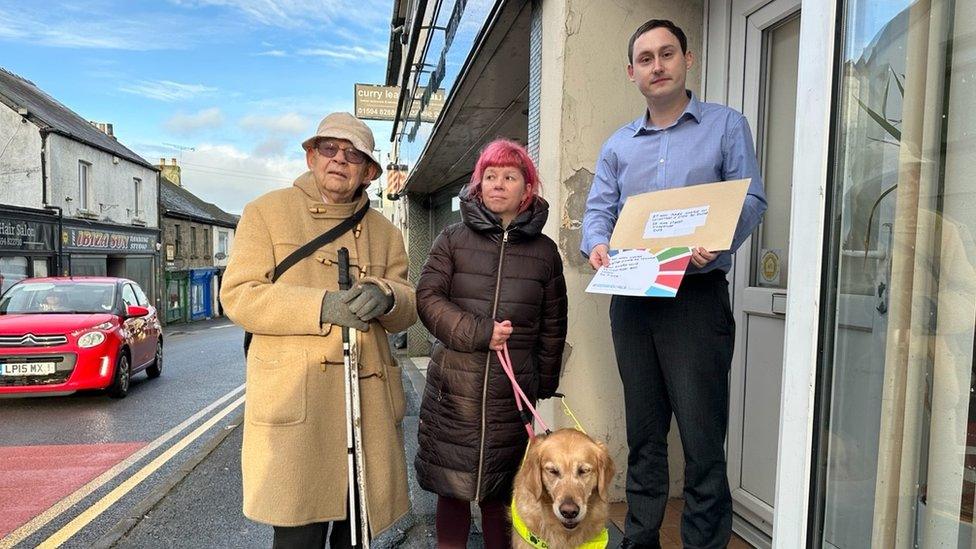
MP Mark Harper accepted the petition outside his constituency office
The petition, organised by the National Federation of the Blind (NFB) UK charity, is requesting safety, security and accessibility on rail networks for blind, deafblind, visually impaired, disabled and all passengers who need assistance at train stations.
Sarah Gayton, Street Access Campaign Coordinator at NFB, said: "This is blatant discrimination.
"Taking away the safety, security and accessibility of public transport from people who rely on it is mean and cruel."
A DfT spokesperson said: "We will move staff out from behind the glass of ticket offices and onto stations to provide more face-to-face help and assistance."
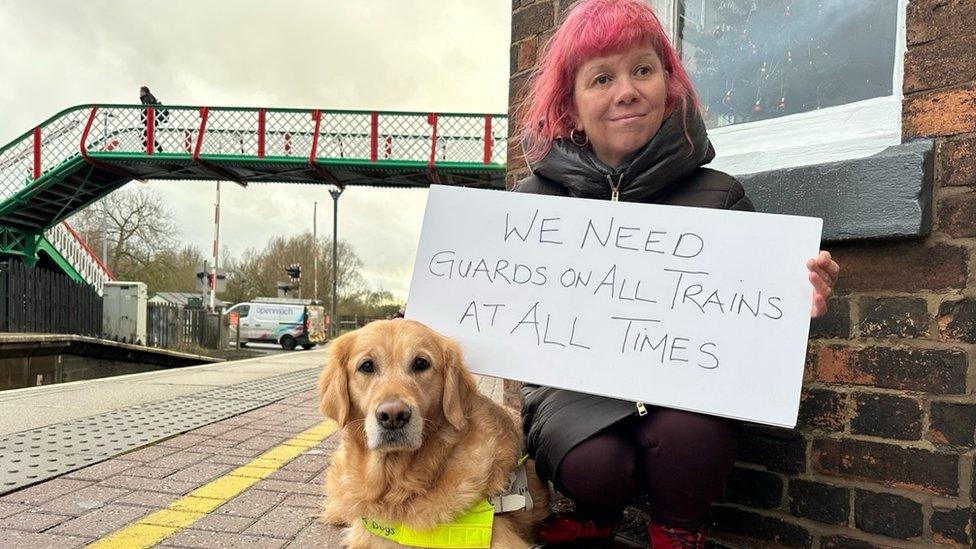
Passenger Sarah Leadbetter said she relied on train staff to travel across the country independently
However Sarah Leadbetter, from Leicestershire, is blind, and said she would be "isolated" if the proposed changes take effect.
At the moment, she walks to Narborough train station independently and purchases tickets at the office.
She is then guided to her seat by the train conductor and helped to access connecting trains.
"If there are no staff at ticket offices and no conductors on trains, how I am supposed to travel safely?" she said.
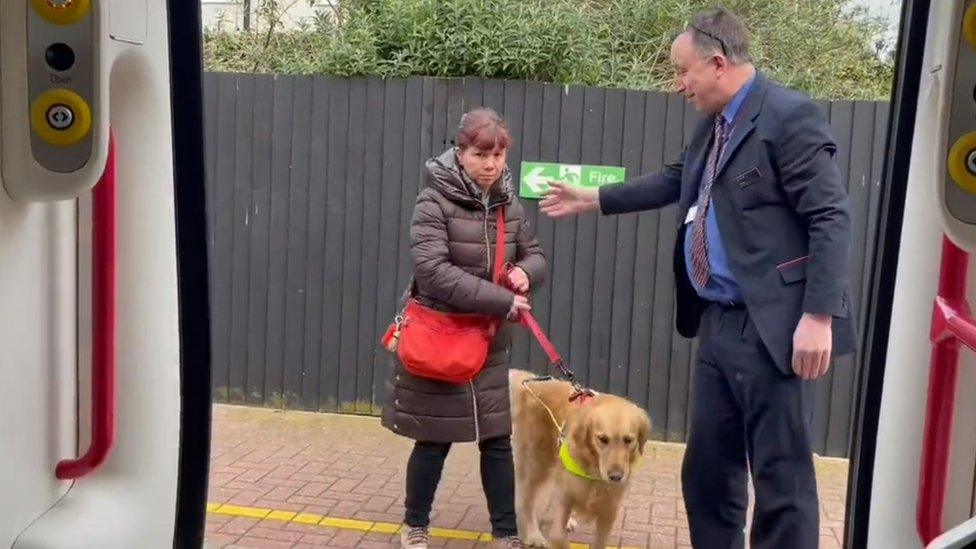
The train conductor helps Ms Leadbetter get onto the train safely
"I simply would not be able to travel on the trains anymore.
"No-one has really thought through the implications these proposed cuts will have on any passengers needing assistance to travel."
The DfT said trains had been operating safely in the UK for many years as driver-only operations, and the independent regulator, the Office of Rail and Road, had approved the approach.
Kevin Greenan is a blind man from Middleton, in Rochdale, and said "conductors on trains are vital".
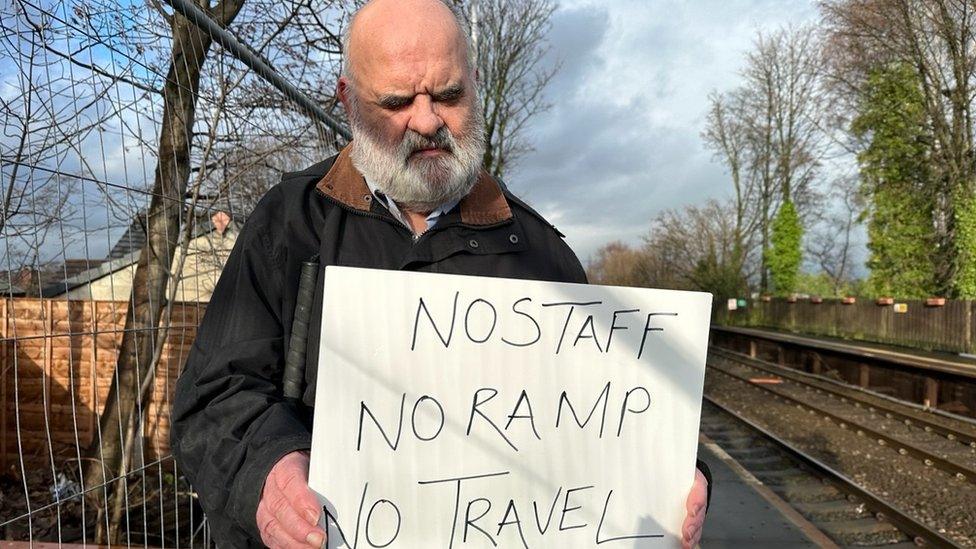
Kevin Greenan says he is angry that trains might become inaccessible for him
"I think what they are proposing is absolutely disgraceful and despicable," he said.
"How dare they decide who can and who cannot travel.
"How dare they decide to use their power and authority to make travel inaccessible for me."
Allow X content?
This article contains content provided by X. We ask for your permission before anything is loaded, as they may be using cookies and other technologies. You may want to read X’s cookie policy, external and privacy policy, external before accepting. To view this content choose ‘accept and continue’.

Follow BBC West on Facebook, external, Twitter, external and Instagram, external. Send your story ideas to: bristol@bbc.co.uk , external
- Published9 May 2024

- Published3 January 2023
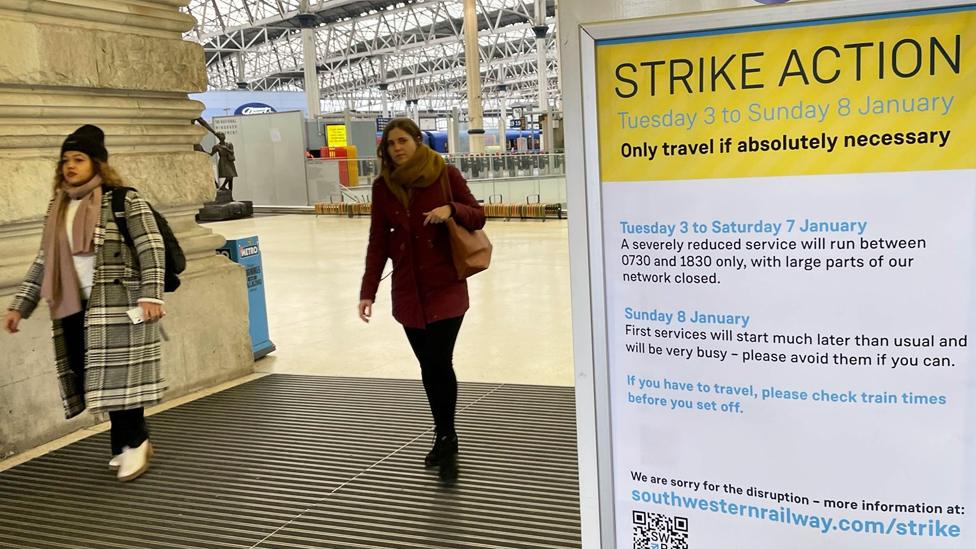
- Published29 December 2022
